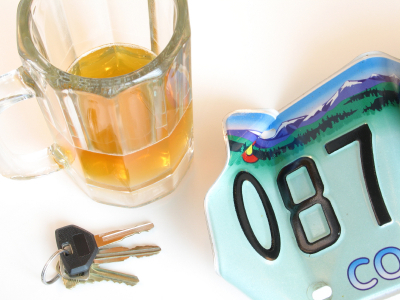
When it comes to hazards on U.S. roads, drunk driving remains one of the deadliest dangers out there. According to a study done by the National Academies of Sciences, Engineering, and Medicine, “Every day in the United States, 29 people die in an alcohol-impaired driving crash—one death every 49 minutes—making it a persistent public health and safety problem.”
Because drunk driving is such a persistent problem, and causes so many personal injuries and deaths, the study recommends lowering the legal blood alcohol content level to .05% nationwide.
Why Lower the Limit?
Proponents of this change state that lowering the BAC to .05% will help prevent drunk-driving related accidents on the road, as fewer impaired people will get behind the wheel. Studies show that for a driver with a blood alcohol level of .05%-.079% “the risk of being in a fatal crash is at least seven times higher than for drivers with no alcohol in their system.”
While a person should never drive when intoxicated, according to the National Transportation Safety Board once a person reaches .08% BAC there are many negative impacts on their driving including:
- Reduced ability to concentrate
- Short-term memory loss
- Difficulty controlling vehicle speed
- Reduced information processing capability
- Impaired perception
- Inability to take safety precautions like putting on a seat belt
Because driving under these conditions is so dangerous, the NTSB supports lowering the BAC level to .05%, which is a much lower level of impairment. So far, only one state, Utah, has actually passed legislation to lower the legal limit for driving to .05% BAC, though other states have proposed legislation to consider the idea.
Targeting Prevention
Although drunk driving fatalities and personal injuries are all too prevalent in the United States, every single one of these accidents is preventable. Prevention is the focus of this suggested law change—by lowering the legal limit, the hope is that more intoxicated and impaired drivers will be stopped from ever getting on the road. Other prevention methods such as sobriety checkpoints, mass media campaigns, and consequence such as license suspension are also implemented across the nation to try to put an end to the preventable harms DUI causes. Lowering the BAC to .05% is another attack aimed at eliminating unnecessary death, injury, loss, and pain.
When you are a victim of a drunk driving accident, your life is changed instantaneously. Personal injuries received in these types of accidents are often very serious and require extensive and expensive medical care. If you have been the victim of a drunk driving accident, call a Los Angeles personal injury drunk driving lawyer to discuss your options as soon as possible. At Walch Law, we understand what you are dealing with and are committed to making sure that your rights are asserted and you get maximum compensation for the injuries you sustained by a drunk driver. Give us a call or fill out our contact us form to set up your totally free consultation and learn more about how we can help.



Comments
There are no comments for this post. Be the first and Add your Comment below.